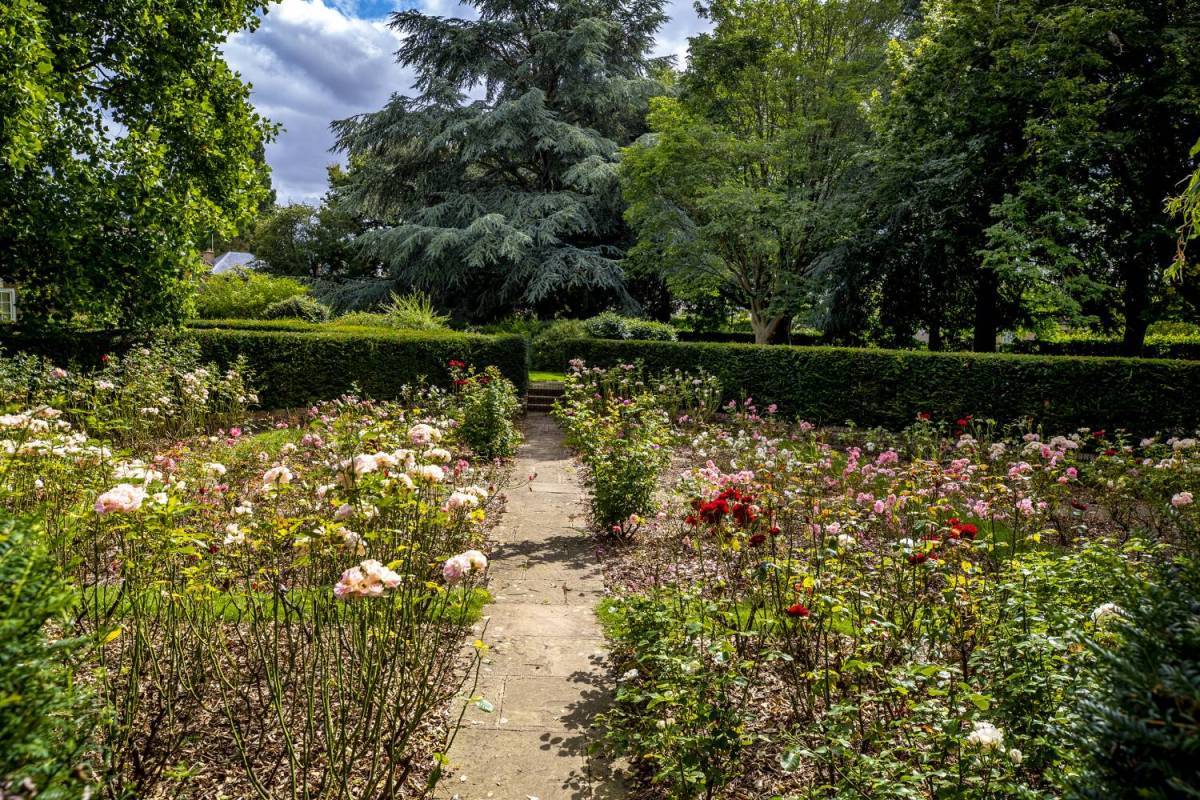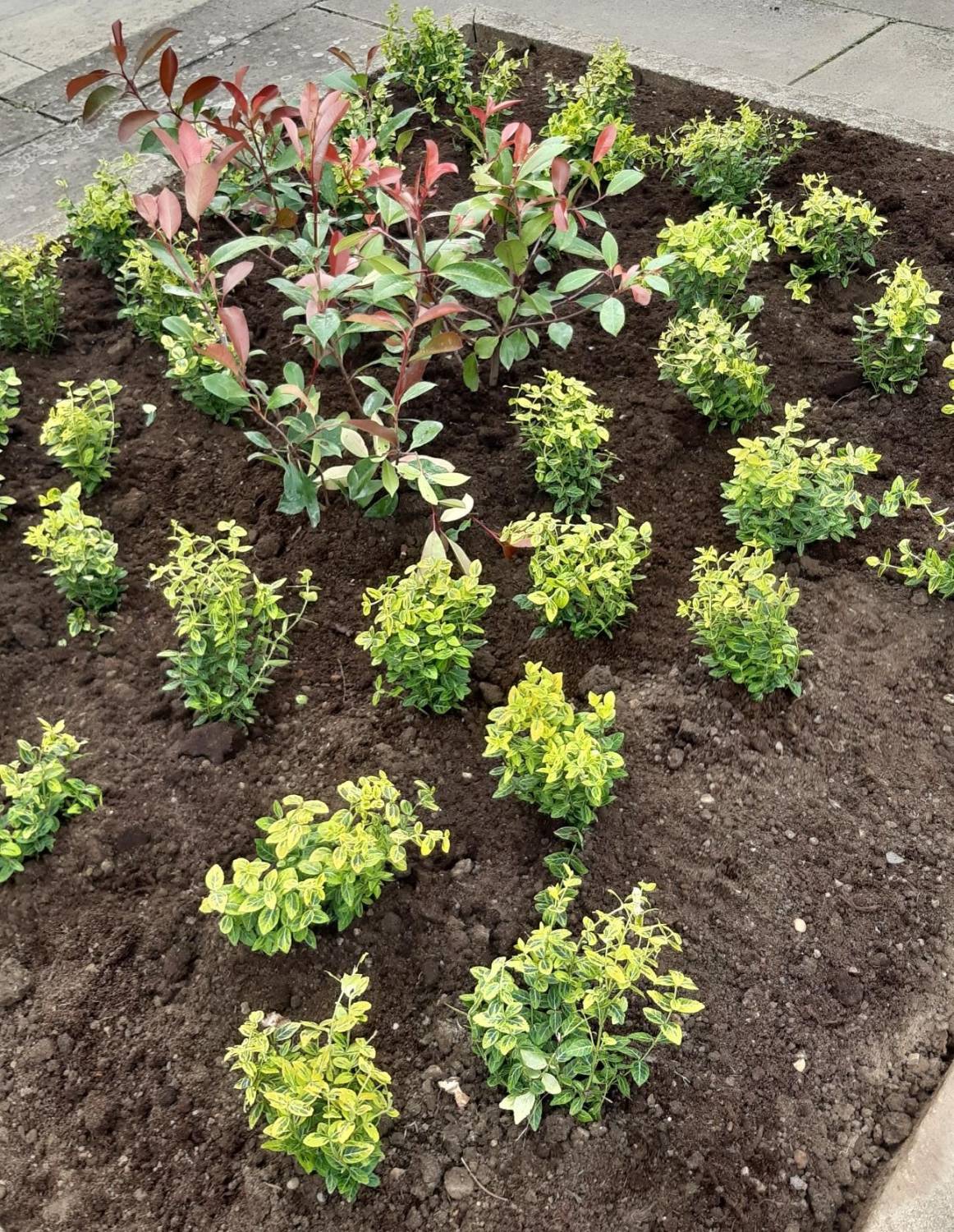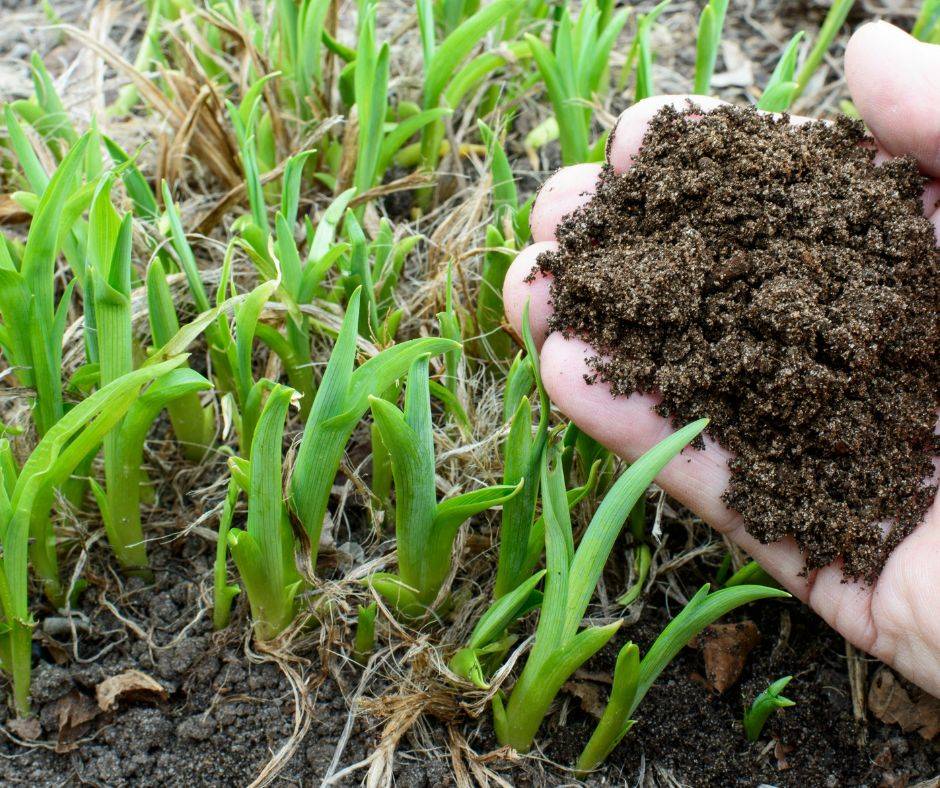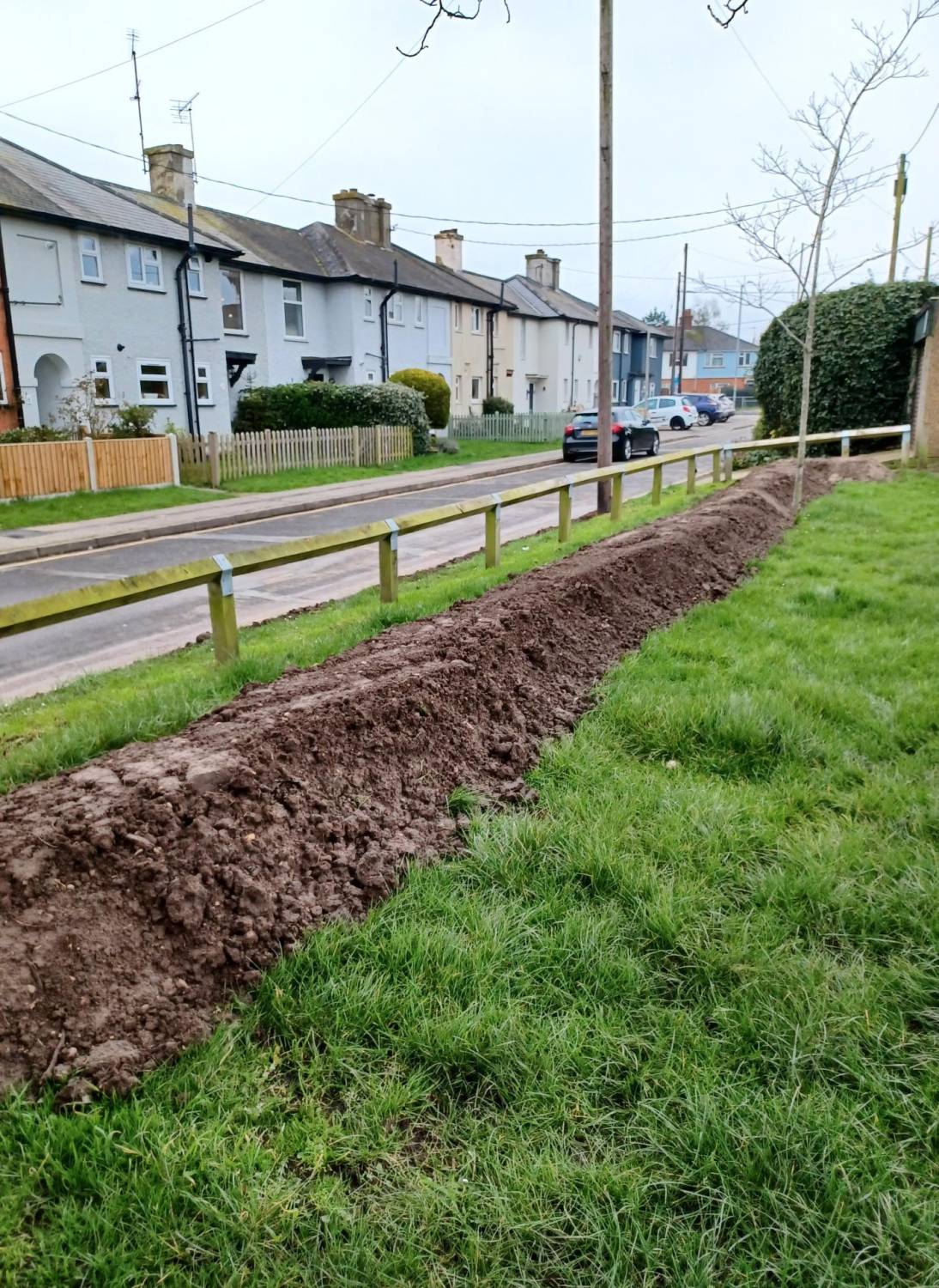Want to know more about tackling climate change in our district? Sign up for our Environment E-newsletter
Reduction in water usage
Although the district often experiences flooding during the winter months, with long periods of drought cause by climate change, our water supply is becoming less predictable. It is up to all of us to use water responsibly. During these periods, moisture also evaporates much more quickly from the soil.
That’s why, when we plant beds, we put down a membrane wherever we can and mulch the soil. Mulching is putting a layer of loose, organic material on the surface of the soil. This creates a barrier, trapping moisture in the soil and meaning less watering is needed. It can also help your garden to be more resilient during times of drought.

Locally supplied whips and trees, planted sustainably
Our Horticultural Team is responsible for all the trees and plants you see in the council’s public spaces. We now plant sustainably, which means we use native plants that will not need as much watering or replacing as frequently.
In 2023, we also sourced all whips (young trees and bushes) and trees from within the district, which supports local businesses and keeps carbon emissions down.
Our bedding plants in 2023 came from Oliver’s Plants, a local chain of nurseries with a real commitment to sustainability. You can find more information about Oliver's Plants on our businesses climate change page.

Peat free soil
As a council, we have switched to using only peat-free compost and soil improver in our beds.
Peat extraction releases large amounts of stored carbon into the atmosphere, which contributes to climate change. Its use is also unsustainable, as it replaces itself at the very slow rate of 1mm per year. This means that humans have been removing it faster than it can replenish itself.

Soil bund
We have installed a soil bund at Rickstones Recreation Ground on Manor Road in Witham.
A soil bund is a natural soil barrier to secure and protect council-owned land from unauthorised access. Ours will be planted with grass and wildflowers, adding to the biodiversity of the area. At Manor Road, this will reduce the need for ongoing maintenance and repair or replacement of the existing wooden knee rails when they fall into disrepair, saving costs into the bargain. The bunds will be cut once a year in the autumn.

